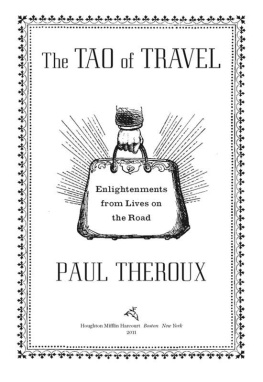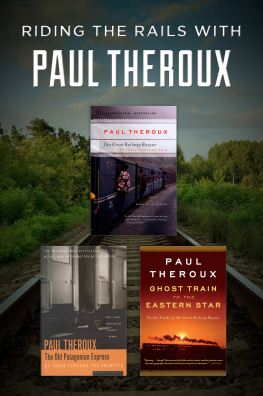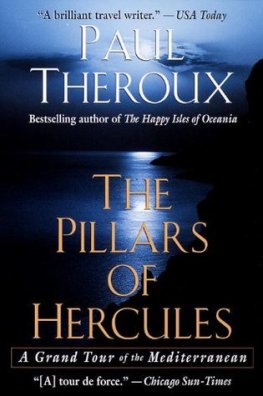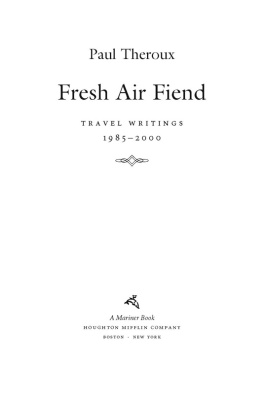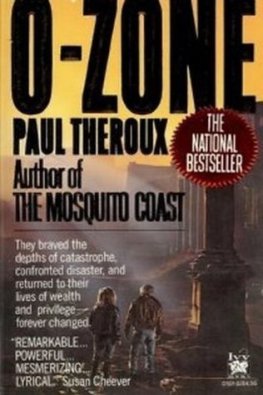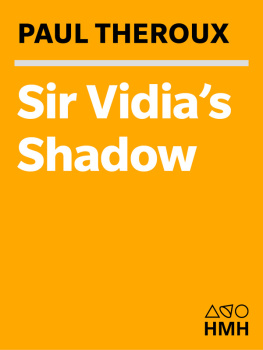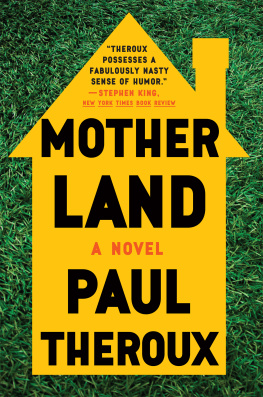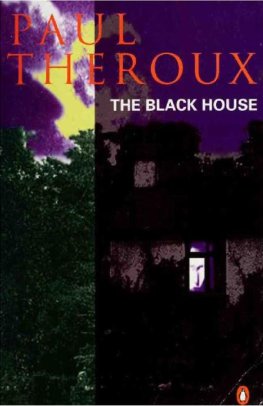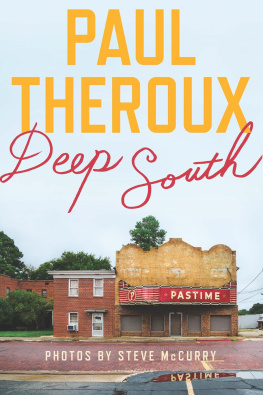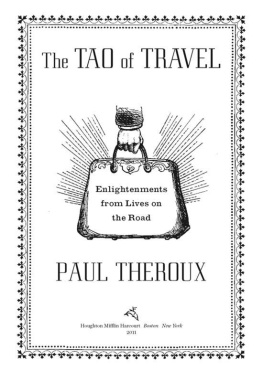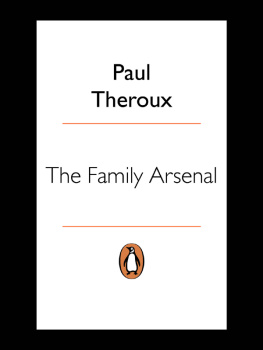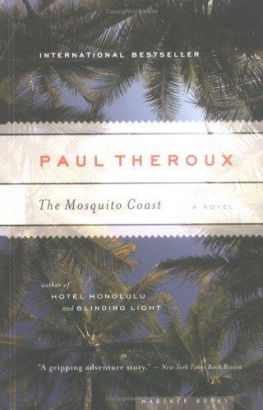Paul Theroux - The Tao of Travel: Enlightenments from Lives on the Road
Here you can read online Paul Theroux - The Tao of Travel: Enlightenments from Lives on the Road full text of the book (entire story) in english for free. Download pdf and epub, get meaning, cover and reviews about this ebook. year: 2011, publisher: Houghton Mifflin Harcourt, genre: Art. Description of the work, (preface) as well as reviews are available. Best literature library LitArk.com created for fans of good reading and offers a wide selection of genres:
Romance novel
Science fiction
Adventure
Detective
Science
History
Home and family
Prose
Art
Politics
Computer
Non-fiction
Religion
Business
Children
Humor
Choose a favorite category and find really read worthwhile books. Enjoy immersion in the world of imagination, feel the emotions of the characters or learn something new for yourself, make an fascinating discovery.
- Book:The Tao of Travel: Enlightenments from Lives on the Road
- Author:
- Publisher:Houghton Mifflin Harcourt
- Genre:
- Year:2011
- Rating:3 / 5
- Favourites:Add to favourites
- Your mark:
- 60
- 1
- 2
- 3
- 4
- 5
The Tao of Travel: Enlightenments from Lives on the Road: summary, description and annotation
We offer to read an annotation, description, summary or preface (depends on what the author of the book "The Tao of Travel: Enlightenments from Lives on the Road" wrote himself). If you haven't found the necessary information about the book — write in the comments, we will try to find it.
The Tao of Travel: Enlightenments from Lives on the Road — read online for free the complete book (whole text) full work
Below is the text of the book, divided by pages. System saving the place of the last page read, allows you to conveniently read the book "The Tao of Travel: Enlightenments from Lives on the Road" online for free, without having to search again every time where you left off. Put a bookmark, and you can go to the page where you finished reading at any time.
Font size:
Interval:
Bookmark:
Houghton Mifflin Harcourt Boston New York
2011



Copyright 2011 by Paul Theroux
All rights reserved
For information about permission to reproduce selections from this book,
write to Permissions, Houghton Mifflin Harcourt Publishing Company,
215 Park Avenue South, New York, New York 10003.
www.hmhbooks.com
Library of Congress Cataloging-in-Publication Data
Theroux, Paul.
The tao of travel : enlightenments from lives on the road / Paul Theroux.
p. cm.
Includes index.
ISBN 978-0-547-33691-6
1. TravelAnecdotes. 2. TravelersAnecdotes. I. Title.
G 180. T 54 2011
910.4dc22 2010042022
Book design by Lisa Diercks
The text of this book is set in Miller.
Printed in China
SCP 10 9 8 7 6 5 4 3 2 1
Permissions and credits follow the index.
Preface: The Importance of Elsewhere
1. Travel in Brief
2. The Navel of the World
3. The Pleasures of Railways
Travel Wisdom of Henry Fielding
4. Murphy's Rules of Travel
5. Travelers on Their Own Books
6. How Long Did the Traveler Spend Traveling?
Travel Wisdom of Samuel Johnson
7. The Things That They Carried
8. Fears, Neuroses, and Other Conditions
9. Travelers Who Never Went Alone
Travel Wisdom of Sir Francis Galton
10. Travel as an Ordeal
11. English Travelers on Escaping England
12. When You're Strange
Travel Wisdom of Robert Louis Stevenson
13. It Is Solved by Walking
14. Travel Feats
15. Staying Home
Travel Wisdom of Freya Stark
16. Imaginary Journeys
17. Everything Is Edible Somewhere
18. Rosenblum's Rules of Reporting
Travel Wisdom of Claude Lvi-Strauss
19. Perverse Pleasures of the Inhospitable
20. Imaginary People
21. Writers and the Places They Never Visited
Travel Wisdom of Evelyn Waugh
22. Travelers' Bliss
23. Classics of a Sense of Place
24. Evocative Name, Disappointing Place
Travel Wisdom of Paul Bowles
25. Dangerous, Happy, Alluring
26. Five Travel Epiphanies
27. The Essential Tao of Travel
Acknowledgments
Index of People and Places
A SACHILD , yearning to leave home and go far away, the image in my mind was of flightmy little self hurrying off alone. The word "travel" did not occur to me, nor did the word "transformation," which was my unspoken but enduring wish. I wanted to find a new self in a distant place, and new things to care about. The importance of elsewhere was something I took on faith. Elsewhere was the place I wanted to be. Too young to go, I read about elsewheres, fantasizing about my freedom. Books were my road. And then, when I was old enough to go, the roads I traveled became the obsessive subject in my own books. Eventually I saw that the most passionate travelers have always also been passionate readers and writers. And that is how this book came about.
The wish to travel seems to me characteristically human: the desire to move, to satisfy your curiosity or ease your fears, to change the circumstances of your life, to be a stranger, to make a friend, to experience an exotic landscape, to risk the unknown, to bear witness to the consequences, tragic or comic, of people possessed by the narcissism of minor differences. Chekhov said, "If you're afraid of loneliness, don't marry." I would say, if you're afraid of loneliness, don't travel. The literature of travel shows the effects of solitude, sometimes mournful, more often enriching, now and then unexpectedly spiritual.
All my traveling life I have been asked the maddening and oversimplifying question "What is your favorite travel book?" How to answer it? I have been on the road for almost fifty years and writing about my travels for more than forty years. One of the first books my father read to me at bedtime when I was small was Donn Fendler: Lost on a Mountain in Maine.This 1930s as-told-to account described how a twelve-year-old boy survived eight days on Mount Katahdin. Donn suffered, but he made it out of the Maine woods. The book taught me lessons in wilderness survival, including the basic one: "Always follow a river or a creek in the direction the water is flowing." I have read many travel books since, and I have made journeys on every continent except Antarctica, which I have recounted in eight books and hundreds of essays. I have felt renewed inspiration in the thought of little Donn making it safely down the high mountain.
The travel narrative is the oldest in the world, the story the wanderer tells to the folk gathered around the fire after his or her return from a journey. "This is what I saw"news from the wider world; the odd, the strange, the shocking, tales of beasts or of other people. "They're just like us!" or "They're not like us at all!" The traveler's tale is always in the nature of a report. And it is the origin of narrative fiction too, the traveler enlivening a dozing group with invented details, embroidering on experience. It's how the first novel in English got written. Daniel Defoe based Robinson Crusoeon the actual experience of the castaway Alexander Selkirk, though he enlarged the story, turning Selkirk's four and a half years on a remote Pacific Island into twenty-eight years on a Caribbean island, adding Friday, the cannibals, and tropical exotica.
The storyteller's intention is always to hold the listener with a glittering eye and riveting tale. I think of the travel writer as idealized in the lines of the ghost of Hamlet's father at the beginning of the play:
I could a tale unfold whose lightest word
Would harrow up thy soul, freeze thy young blood,
Make thy two eyes, like stars, start from their spheres,
Thy knotted and combined locks to part
And each particular hair to stand on end
But most are anecdotal, amusing, instructional, farcical, boastful, mock-heroic, occasionally hair-raising, warnings to the curious, or else they ring bells like mad and seem familiar. At their best, they are examples of what is most human in travel.
In the course of my wandering life, travel has changed, not only in speed and efficiency, but because of the altered circumstances of the worldmuch of it connected and known. This conceit of Internet-inspired omniscience has produced the arrogant delusion that the physical effort of travel is superfluous. Yet there are many parts of the world that are little known and worth visiting, and there was a time in my traveling when some parts of the earth offered any traveler the Columbus or Crusoe thrill of discovery.
As an adult traveling alone in remote and cut-off places, I learned a great deal about the world and myself: the strangeness, the joy, the liberation and truth of travel, the way lonelinesssuch a trial at homeis the condition of a traveler. But in travel, as Philip Larkin says in his poem "The Importance of Elsewhere," strangeness makes sense.
Travel in dreams, for Freud, symbolized death. That the journeyan essay into the unknowncan be risky, even fatal, was a natural conclusion for Freud to reach, since he suffered from self-diagnosed
Font size:
Interval:
Bookmark:
Similar books «The Tao of Travel: Enlightenments from Lives on the Road»
Look at similar books to The Tao of Travel: Enlightenments from Lives on the Road. We have selected literature similar in name and meaning in the hope of providing readers with more options to find new, interesting, not yet read works.
Discussion, reviews of the book The Tao of Travel: Enlightenments from Lives on the Road and just readers' own opinions. Leave your comments, write what you think about the work, its meaning or the main characters. Specify what exactly you liked and what you didn't like, and why you think so.

